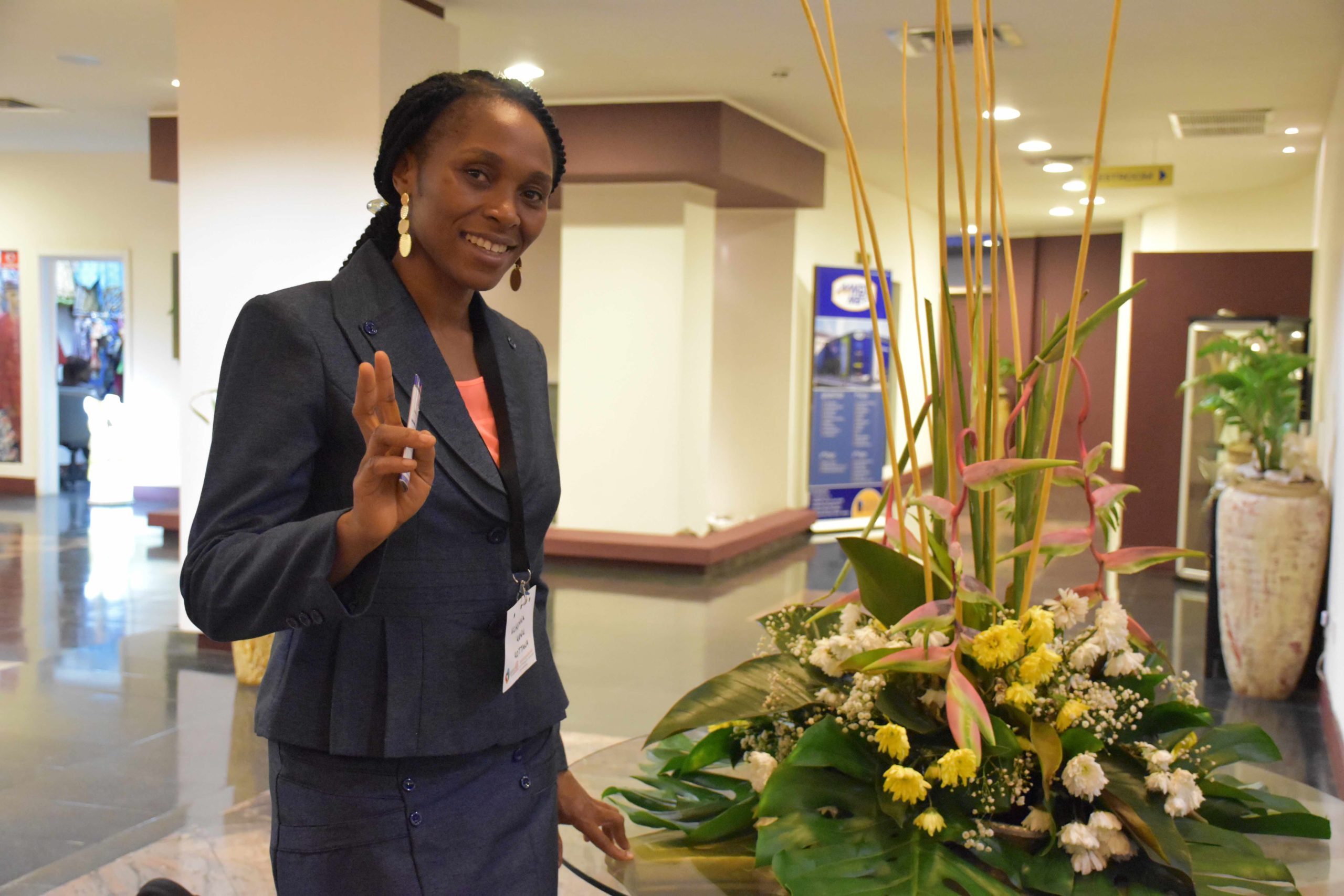By Uchenna Felicia Ugwu
Achieving global food security will require innovation. Processes like plant phenotyping and technologies like digital imaging are examples of innovation that can make a difference. One of the challenges in deploying those technologies is to better understand strategies around open innovation, data science, intellectual property rights, and international law. Open AIR researchers are collaborating with entities like the Global Institute for Food Security (GIFS) and Global Open Data for Food and Agriculture (GODAN) to address these challenges.
IP regulations dictate how such innovative knowledge may be accessed, used and transferred across borders. As a result, IP laws may prevent access by farmers to seeds, genetic resources, and data that are essential for improving crop production and breeding new varieties. There is a lack of consensus about the optimal strength of patents, plant breeders’ rights, or the breadth of defences necessary for maximising technology transfer and agricultural innovation. This makes it imperative to adopt the frameworks for IP protection suitable to different countries and sectors.
With little research being done regarding the influence of IP regulations on access to agricultural technology in Africa, Open AIR research is helping to bridge the gap. In June, 2018, a team of Open AIR researchers led by Prof. Jeremy de Beer participated in an E-Consultation with other experts on how to advance the utilization of digital technology by smallholder farmers. My own paper, “The Suitability of International Intellectual Property Laws for Protecting Traditional Knowledge and Indigenous Innovations in Africa”, published in the African Journal of Intellectual Property (AJIP), 2017; and Gustavo Magalhaes literature review entitled “Data ownership and economic rights in the case of smallholder farmers in Ghana”, both provide illustrations on how to tailor IP regimes to advance the adoption of phenotyping and agricultural technology by subsistence farmers in Africa.
As an Open AIR scholar, I have been carrying out PhD research which examines current international and regional agreements negotiated by West African countries, along with contemporary literature to identify how IP regulations can be formulated to encourage access to knowledge, technology transfer, and facilitate the creation of new customized agricultural technologies, in a manner that is affordable to African countries. This study provides insights on the strategy that will best advance adoption of agricultural technology, without offending regional and multilateral IP regulations in Africa. The study expands on the P2IRC objective of understanding how to leverage the power of digital phenotyping and genomics for plant breeding. It also provides important directions on the socio-economic impacts of digital agriculture in West Africa, and how this should shape future IP policy in the future.
Some key findings of my research are summarized below. Based on this research, the formulating of IP policy in Africa can be used to advance food security in the region so long as it considers the following key points:
- As agriculture in the majority of African countries is still largely subsistence, to be relevant, agricultural technologies should focus on local crops and be developed in negotiation with domestic farmers. Protecting local farmers’ rights plays an important role in harnessing IP to advance food security.
- A wealth of genetic resources and traditional knowledge is available relating to major food crops in the region such as cassava and yam. This knowledge will not fulfil the conditions for patents under formal patenting systems, however, such resources may be harnessed by developing alternative IP policies that recognize informal innovations, provide for prior informed consent, and access and benefit sharing agreements with domestic farmers and local communities. Provisions exist in multilateral regulations that allow countries’ policy spaces to adopt such provisions.
- IPRs are not absolute rights. Rather IP protection is built on an instrumentalist system where IPR are granted to advance specific objectives including increased invention, trade and sustainable development. Attaining these objectives requires IPRs to be balanced with obligations relating to public interests and fundamental rights relevant to food security contained in agreements such as the CBD, ITPGRFA, and relevant regional and bilateral free trade agreements.
- IP law already contains exceptions and limitations to patents for plant breeders’ rights that allow for protection of food security as part of the overriding objectives of IP protection. These provisions, along with human rights such as the right to food, must be considered in the interpretation of IP regulations.
- Developing countries and LDC’s should measure the value of a patent in proportion to its ‘blocking value’. To what extent does it constrain the transfer of needed technology through opportunities for utilizing and contributing to digital agriculture? Only those applications that pass this test should be granted patentability.
Differentiation in IP Treaties: A Tool for Advancing Food Security in Africa
My research reveals that the agricultural landscape of African countries is unique because it is mostly dominated by subsistence farmers, utilizing local products and traditional agricultural processes, such as the free exchange and reuse of seeds. As such, any attempt to adopt agricultural technology in Africa requires the adoption IP laws and policies, contextualized to meet the requirements of smallholder farmers on the continent.
My research proposes that the principles and provisions for differentiation in international law may be used as legal and policy tools for contextualizing multilateral intellectual property (IP) regulation to support food security in Africa. The principle of differentiation states that the law should not be applied to parties that are dissimilar in the same manner, but must be interpreted and applied in a manner that recognises and accommodates such differences. Differentiation is based on the idea that laws and policies cannot be assessed in a vacuum, but must be considered in the context to which they apply. This principle allows for more flexible interpretation of IP regulation, which could advance access. For example, as users of technology, differentiation would require that smallholder farmers be granted rights to affordably access and contribute to IP protected data generated both on and off the farm. This would help make digital technology accessible and affordable to smallholder farmers as well as multinational companies.
Following a review of the relevant multilateral treaties, I have found that current international frameworks for IP protection still allow for the adoption of a much broader form of differentiation in regional agreements. Contextualisation of IP laws and policies to advance food security in Africa will require differential provisions for national sovereignty, farmers’ rights, prior and informed consent, access and benefit sharing, and human rights exceptions, at the national and regional levels. IP related concepts, including innovation and fair trade, should be redefined to protect traditional knowledge and local inventions that play a prominent role in creating food security in West Africa. Exceptions to patents and PBRs should be provided for biological materials and farming processes that are essential to regional food security and development. Where traditional knowledge and local genetic materials are utilised by a company, obligatory provisions should be made requiring prior informed consent and equitable access and benefit sharing arrangements with local communities where such knowledge or material is found.
To be effective, differentiation between countries must be measured not only based on economic considerations, but also on the assessment of relevant non-economic impacts. Because phenotyping may aid food security through increased production, my research clarifies a vast array of exceptions and limitations that may be allowed for phenotype technology under IP regimes, where it’s specifically linked to food security.
The new framework being developed through this research will play an important role in showing African countries and relevant companies how they can take agroecological research out from the closet, to practically applying it in order to advance food security in the region.








